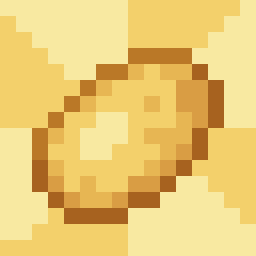A serial comma (or Oxford comma) is an optional comma used before the last item in a list. For example, “bread, butter, and tax evasion” uses a serial comma, whereas “bread, butter and tax evasion” does not.
Do you use it? Why or not? I myself always use it, and I find it really weird when it’s not there. I don’t perceive any less of a pause between the last two items in a list than between any others, so it feels natural to put a comma there as well. Tbh, I’m so used to it that I usually have to do a double-take when it’s not there (since it looks like a grammar error to me at first).
I use it.
Only way to avoid travesties like the famous “I want to thank my parents, Margaret Thatcher and God.”
I don’t use it because I enjoy the chaos.
Yes. Things feel out-of-balance without it to me. However, if the meaning is unclear (something something stripping Hitler and Stalin), I will work around it and/or use other punctuation. I think I have a bit of a weird synesthesia thing going on for written text (English or written code (in the programming sense); I don’t have it as much in the other languages I read/write, but it isn’t absent there, either).
I use it because it feels like otherwise you are lumping two things together. In your example it would be butter and tax.
Another example could be talking about people:
I’m having Jim, Frank, Ian and Susan over for dinner.
Without the comma I feel like that implies Ian and Susan are in some kind of relationship.
With food:
I had pickles, bacon, ham and cheese for lunch.
That seems to me like someone had a ham and cheese sandwich versus ham and cheese separately.
They’re sometimes necessary for disambiguation. I use them all the time because it’s easier than remembering to use them when they’re necessary.
Yeah exact same opinion. I’ve trained myself to use them by default. Not having one when necessary is a lot worse than having them where it’s not absolutely needed. Just totally cuts out any chance of ambiguity.
Inclusion is non negotiable.
I’m not a native speaker and was taught not to use it in middle school.
You should sue them.
Yes. Because it’s the correct thing to do.
😜
It makes more logical sense to use the serial comma in this example. Bread, butter, and tax evasion are three separate things. If you leave the comma off, it becomes “bread, butter and tax evasion” suggesting that the butter and tax evasion go together with each other. Give me some butter on my tax evasion, please.
Haha, this is gold. I’d like to think I fall more into the pedant category (except when something actually matters; then I lean towards moron).
I was always taught to never use it (UK) - but will use it where there might otherwise be the risk of ambiguity
I’m not a native speaker, but I do prefer using it yeah. In my opinion it reads nicer and less ambiguous. In your example the “butter and tax evasion” otherwise kinda reads like it’s one thing. You need to finish reading the following words before you can be sure that it’s the “terminal and” and not some in-between “and”. But “, and” directly communicates that it’s the terminating “and”, making reading easier.
Eh, in casual situations like this, it depends on if the , registers or not. I’m not wasting attention to go back and add one.
But otherwise, as useful. It helps clarify the difference between ands. Some ands are used to connect two things in the entire list as a unit, so when that is a factor, it helps.
I want to be able to communicate both ideas:
https://i.kym-cdn.com/entries/icons/original/000/017/771/the-oxford-comma_52c855ed979ed_w1500.jpgThe latter isn’t even a proper use a comma, no? To introduce a list you should use a colon.
I was taught in school (UK in the '90s) that putting a comma in that spot is outright wrong. As an adult I realised it is much clearer and always use it.














